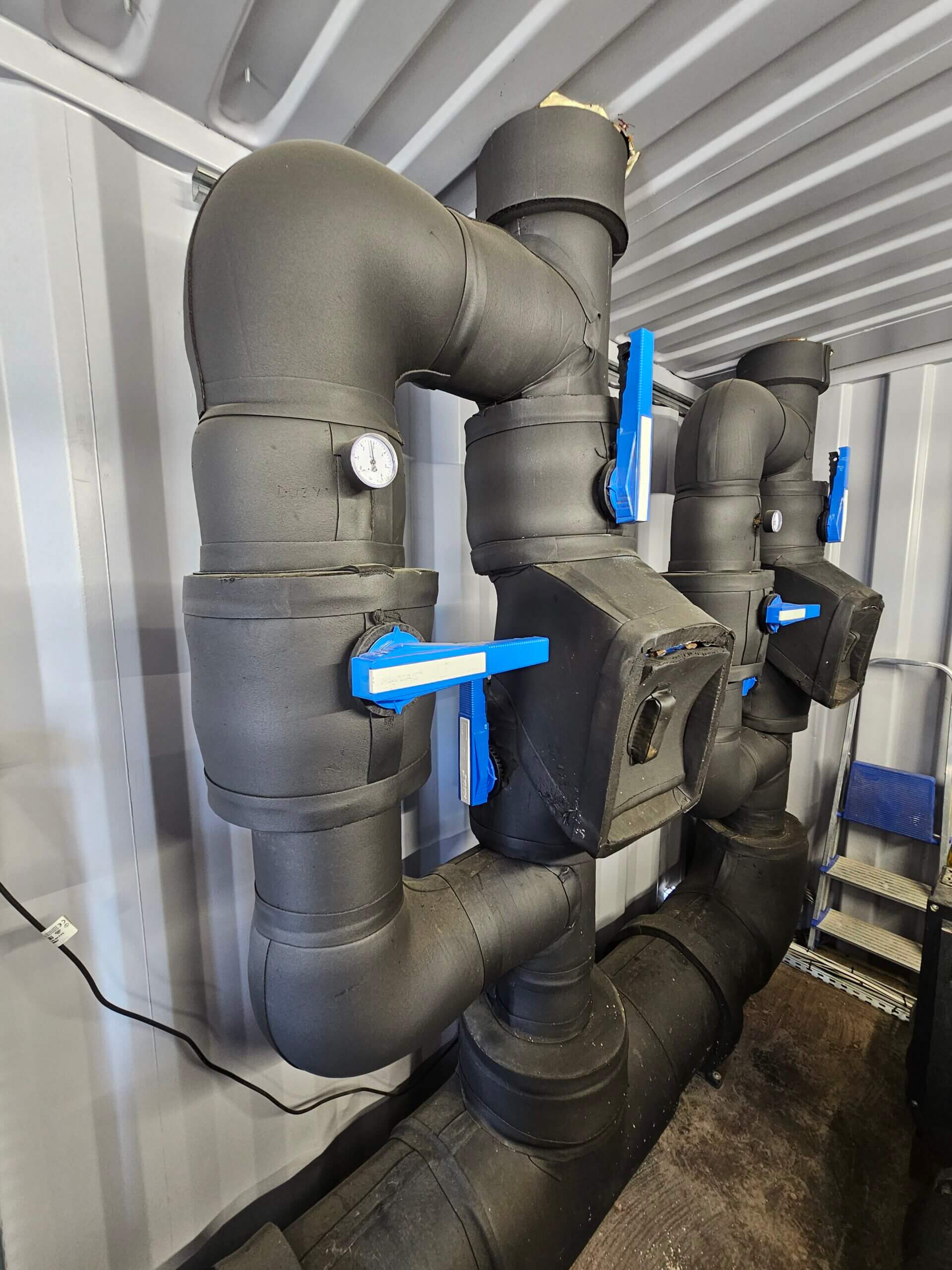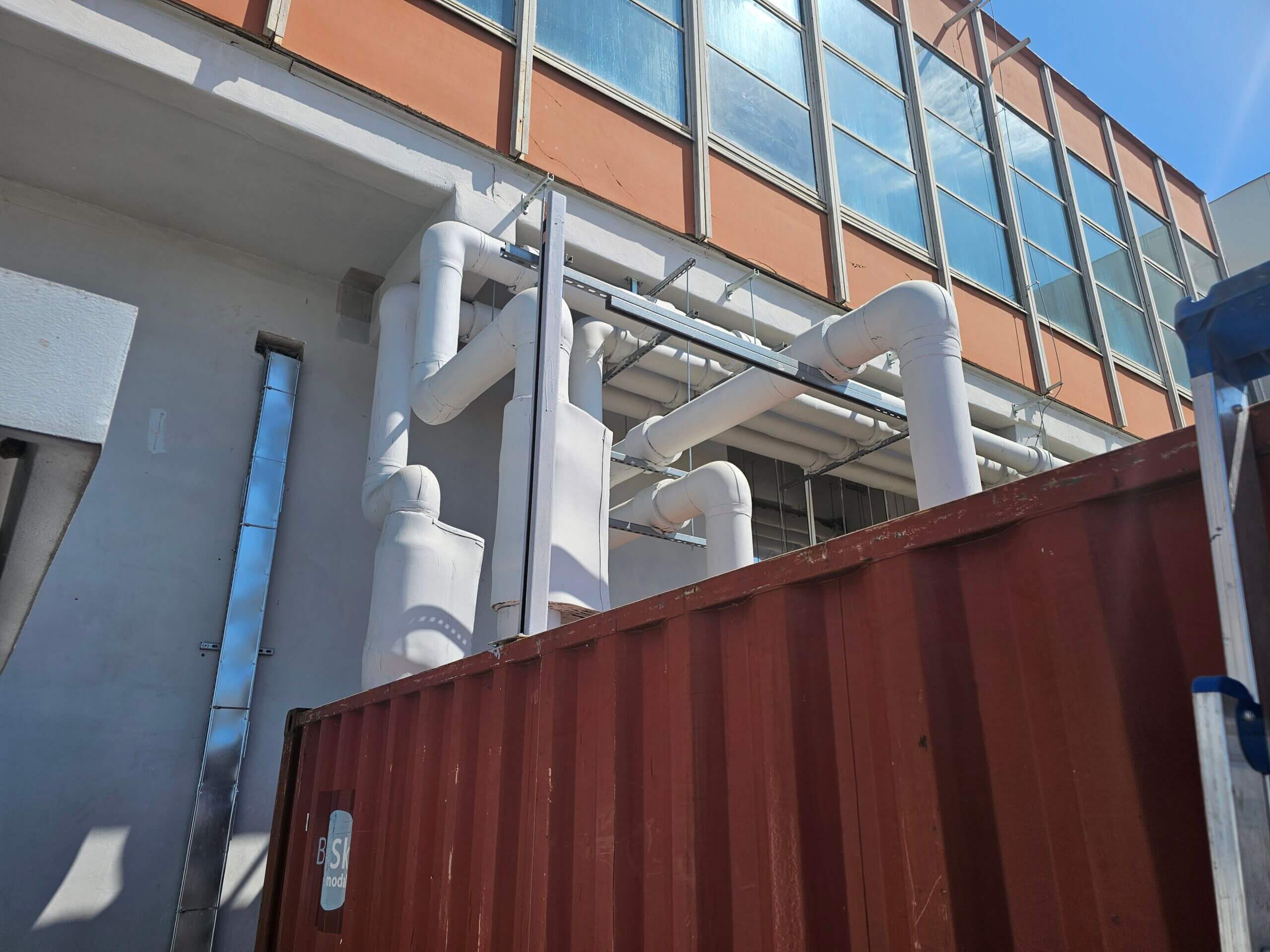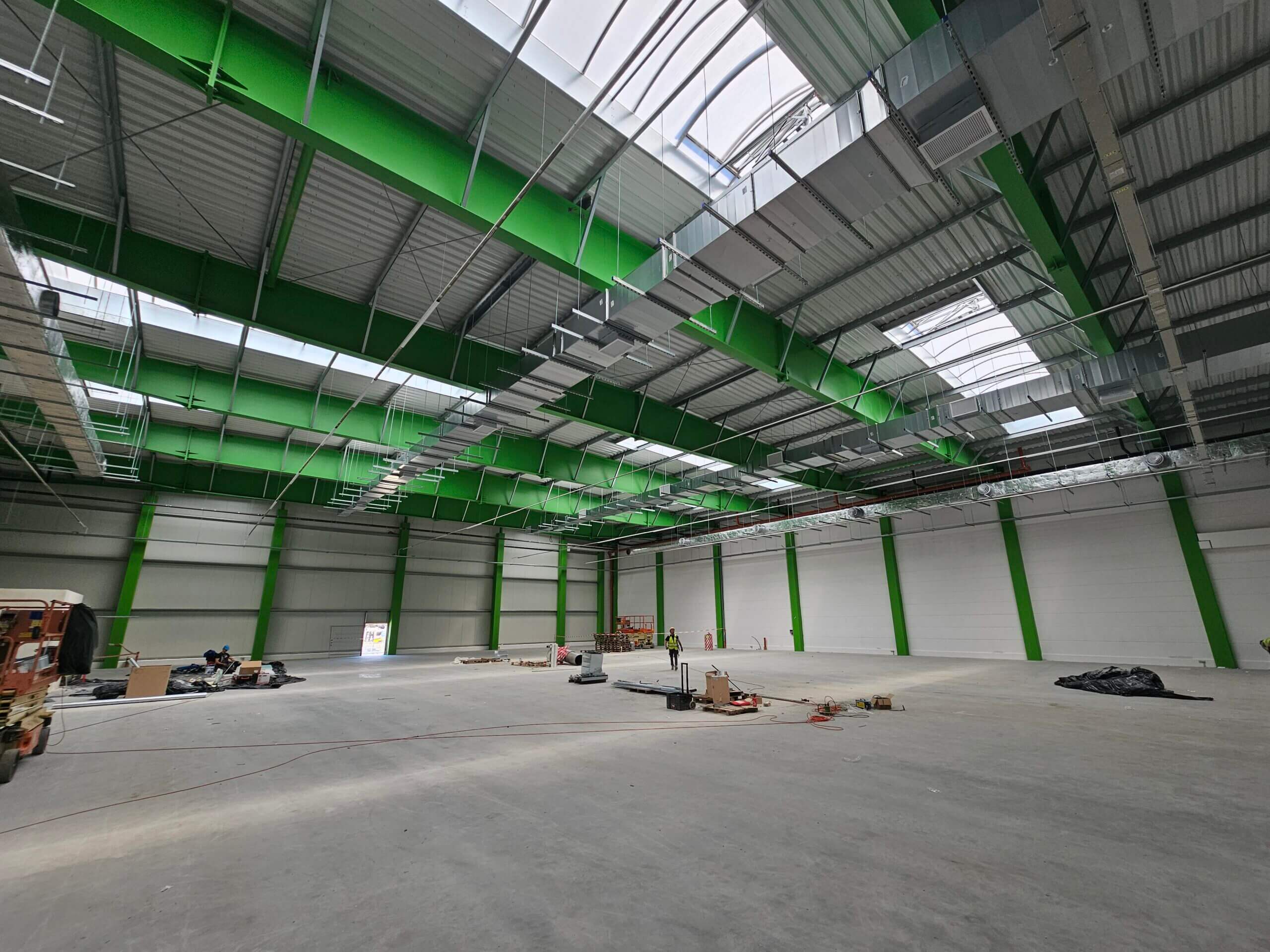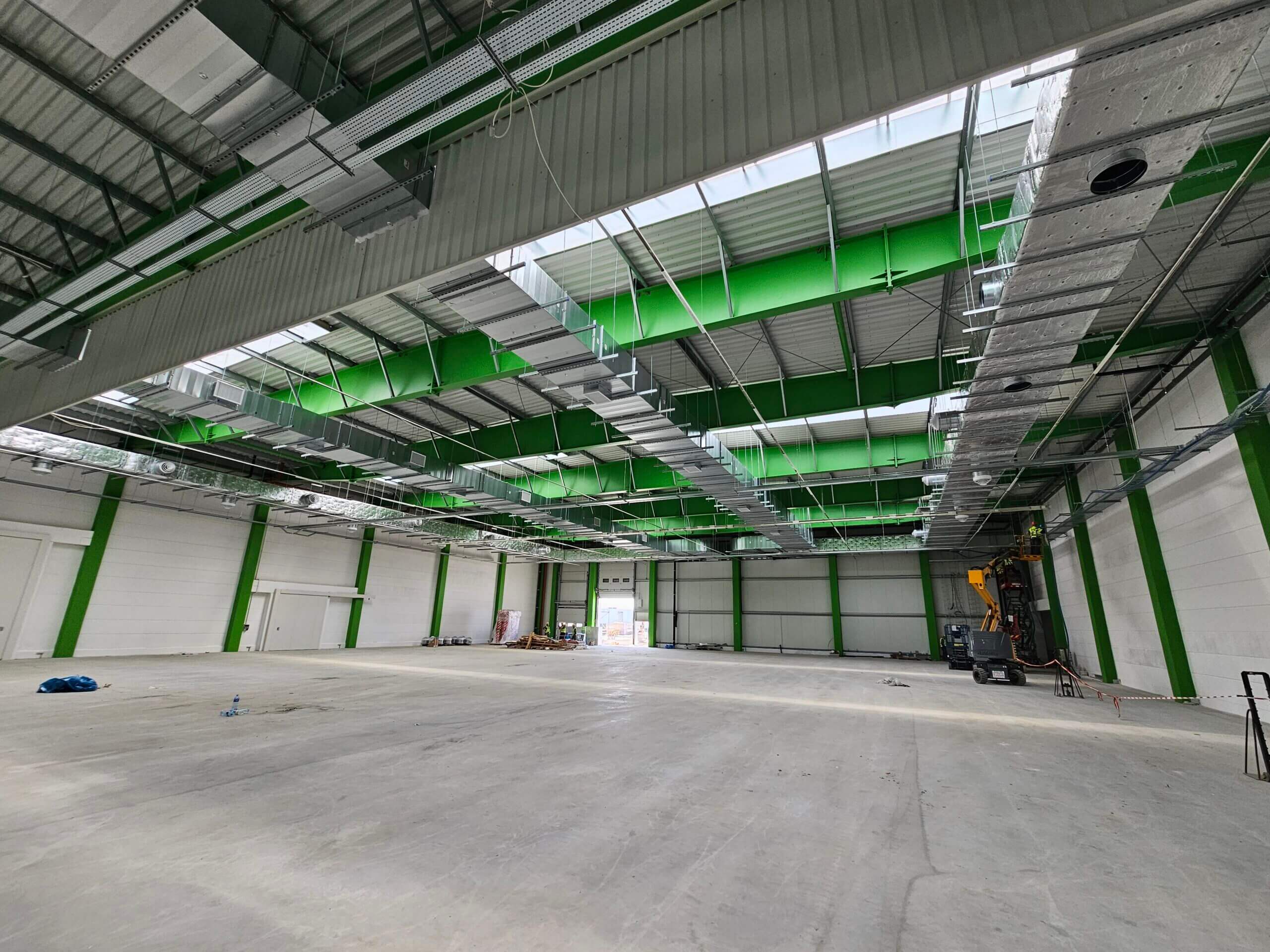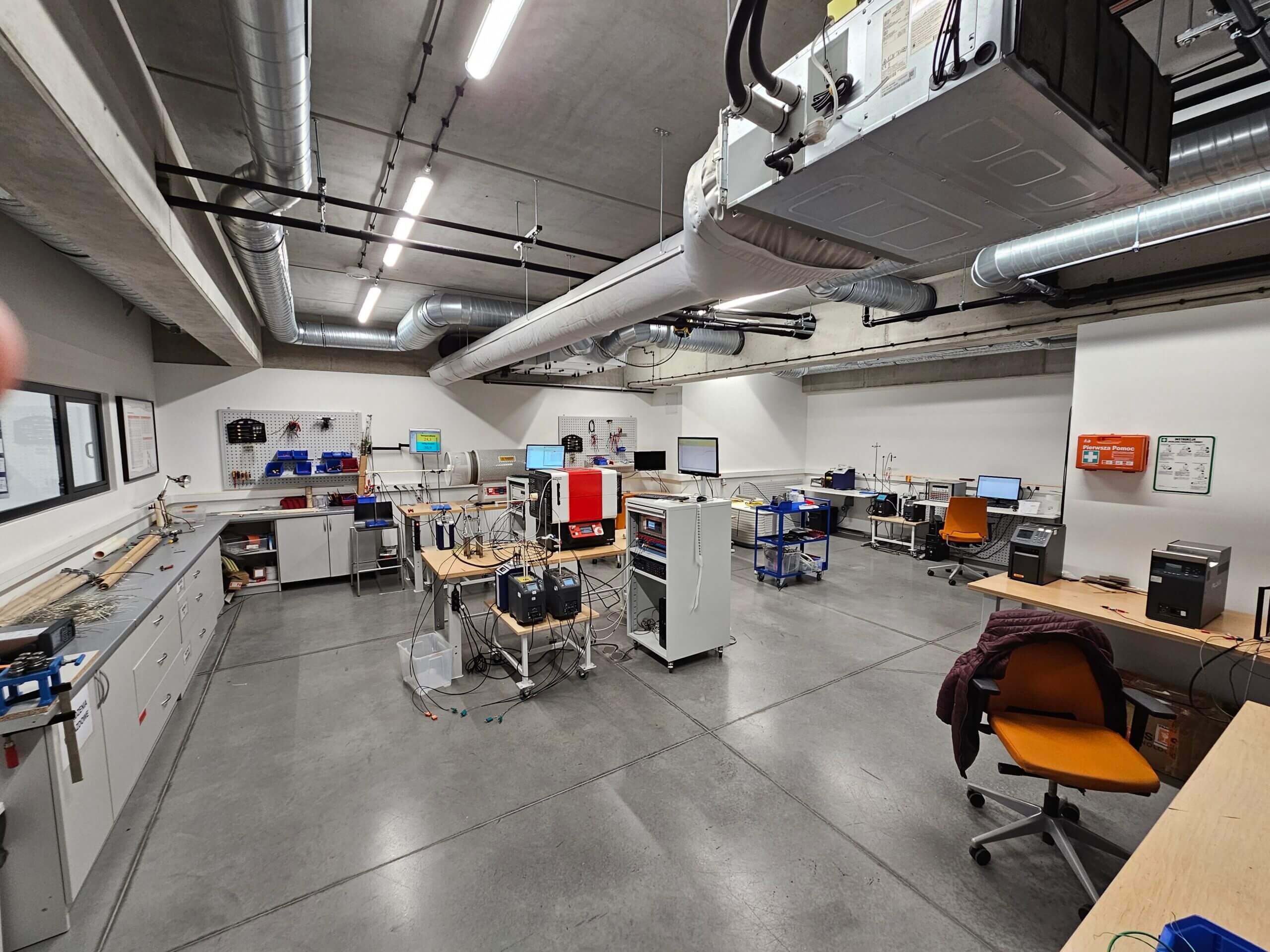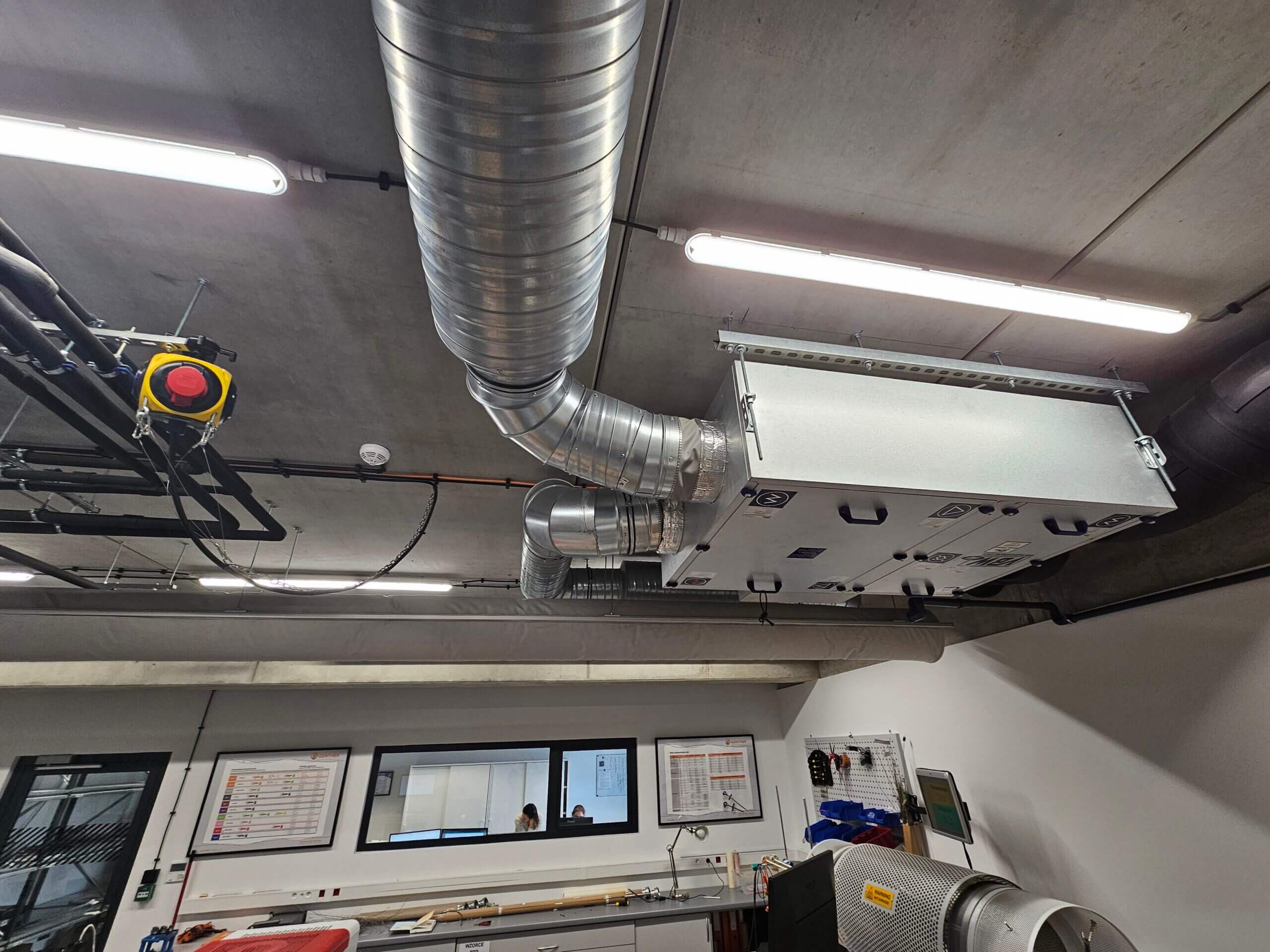Heat pumps
Energy-Efficient Heat Pumps for Your Business.
What is a Heat Pump?
A heat pump is an energy-efficient system that transfers heat from one place to another, providing both heating and cooling capabilities. It works by extracting heat from the air, water, or ground and moving it to a space that needs heating, or conversely, by transferring heat from inside a building to the outside to cool the space. At 3D Energy Tech, we specialize in designing and implementing heat pump systems tailored to your facility’s needs, offering sustainable and cost-effective solutions for both residential and commercial applications.
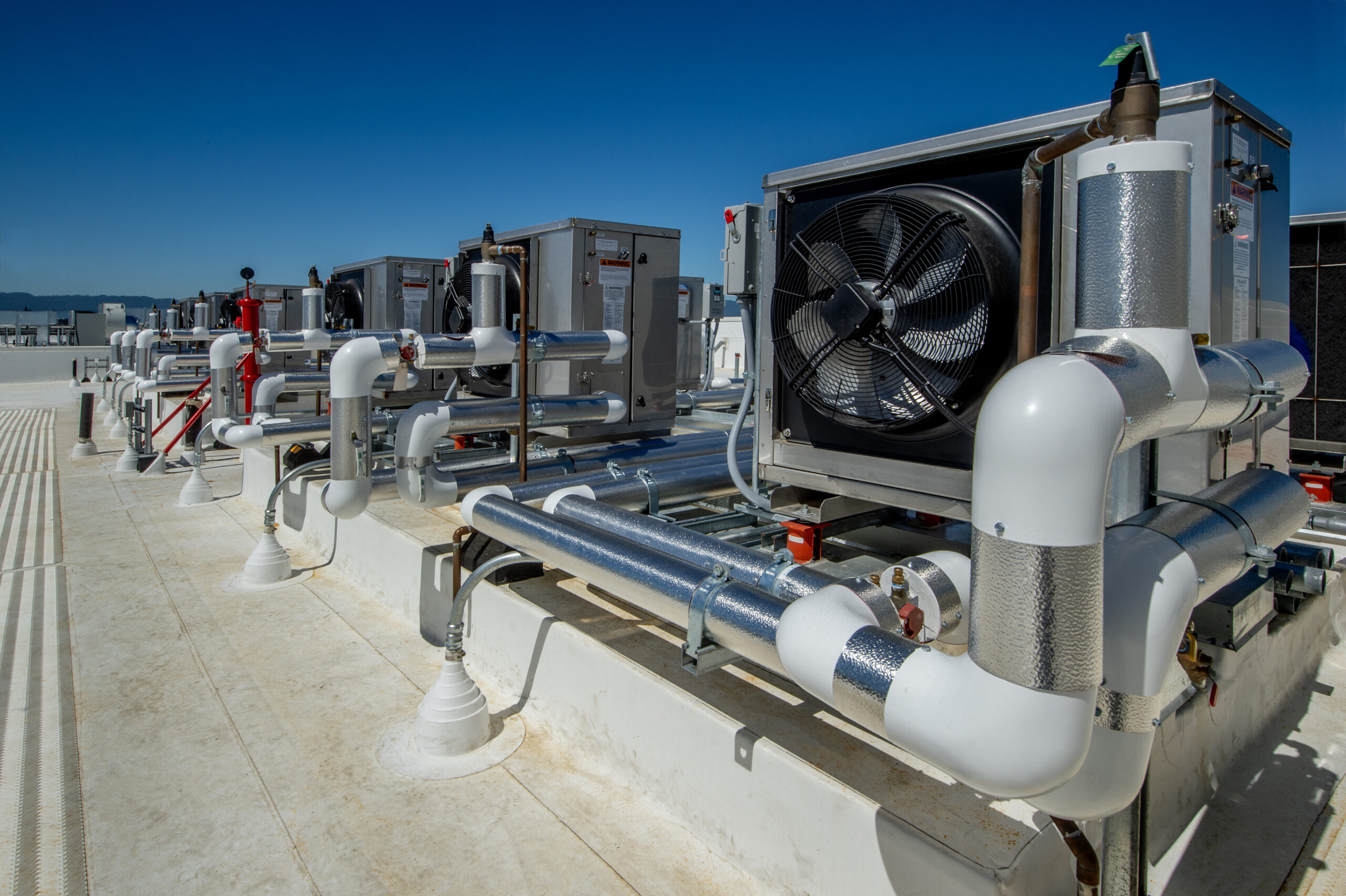
How Do Heat Pumps Work?
Heat pumps operate on the principle of heat transfer, rather than generating heat directly like traditional heating systems. The process involves a refrigerant fluid that absorbs and releases heat as it circulates between the inside and outside of your building. Heat pumps are most commonly used in three configurations: air-source, ground-source (geothermal), and water-source.
1. Heating Mode: In the winter, the heat pump extracts heat from the outside air, water, or ground and transfers it inside to heat the building. Even in cold temperatures, heat is present in the environment, and a heat pump can efficiently collect and redistribute it.
2. Cooling Mode: In the summer, the process is reversed, with the heat pump removing heat from inside the building and releasing it outside to provide cooling, much like an air conditioner.
3. Reversible Operation: Some heat pumps, especially air-source models, can switch between heating and cooling modes, providing year-round climate control.
Types of Heat Pumps
1. Air-Source Heat Pumps
• How It Works: Air-source heat pumps extract heat from the outside air and transfer it inside for heating. In cooling mode, they remove heat from inside and release it outdoors.
• Applications: Residential homes, office buildings, commercial spaces, and light industrial applications.
• Benefits: Easy to install, suitable for a wide range of climates, and energy-efficient for both heating and cooling.
2. Ground-Source (Geothermal) Heat Pumps
• How It Works: Ground-source heat pumps use the stable temperature of the earth to transfer heat. A system of pipes (the ground loop) is buried underground, circulating a fluid that absorbs or releases heat to or from the ground.
• Applications: Large residential homes, office buildings, industrial facilities, and schools.
• Benefits: Highly efficient, long lifespan, and less affected by temperature fluctuations, making them ideal for colder climates. Geothermal systems also require more space for installation, which may not be suitable for all locations.
3. Water-Source Heat Pumps
• How It Works: Water-source heat pumps use bodies of water such as lakes, rivers, or wells to exchange heat. Water circulates through a closed-loop system, absorbing heat from the water body in winter or releasing heat into the water during the summer.
• Applications: Large industrial buildings, commercial facilities, and campuses located near a water source.
• Benefits: Provides an efficient alternative where a nearby water source is available, making it a suitable option for large buildings or complexes.
4. Hybrid Devices
• How It Works: Hybrid heat pump systems combine a traditional furnace with a heat pump to optimize energy use. The heat pump handles mild temperature conditions, while the furnace kicks in during extreme cold.
• Applications: Residential homes and businesses in climates with extreme temperature swings.
• Benefits: Optimized energy efficiency, flexible operation, and improved comfort throughout the year.
Benefits of Heat Pumps
• Energy Efficiency: Heat pumps are up to 4 times more efficient than traditional heating systems because they transfer heat rather than generating it. For every unit of energy consumed, a heat pump can deliver multiple units of heating or cooling.
• Lower Energy Bills: By using less energy to heat and cool your space, heat pumps can significantly reduce your utility bills, making them a cost-effective long-term investment.
• Environmentally Friendly: Produces fewer greenhouse gas emissions compared to fossil fuel-based heating systems, helping reduce your carbon footprint and contributing to sustainability goals.
• Dual Functionality: Heat pumps provide both heating and cooling, eliminating the need for separate systems for each function and reducing the space required for equipment.
• Long Lifespan: Heat pumps typically have a longer lifespan compared to traditional HVAC systems, often lasting up to 15 years or more with proper maintenance.
• Quiet Operation: Unlike traditional HVAC systems, heat pumps operate quietly, providing comfort without noise disruption.
•Low Maintenance: Heat pumps require less maintenance than conventional heating and cooling systems, reducing the need for repairs and extending the system’s lifespan.
Applications of Heat Pumps
Heat pumps can be used in a wide range of applications across both residential and commercial sectors, providing energy-efficient heating and cooling for:
• Residential Homes: Efficient heating and cooling solutions for households, with options ranging from small air-source units to large geothermal systems.
• Office Buildings: Provide a consistent and efficient indoor climate in offices and commercial spaces, improving employee comfort while reducing energy consumption.
• Industrial Facilities: Heat pumps can be integrated into industrial processes that require temperature regulation or to reduce heating and cooling costs in large buildings.
• Schools and Universities: Provide consistent comfort in classrooms, auditoriums, and gyms while minimizing operational costs.
• Retail and Hospitality: Hotels, restaurants, and retail spaces can benefit from the efficient heating and cooling capabilities of heat pumps, improving customer comfort and energy efficiency.
• Healthcare Facilities: Hospitals, medical centers, and nursing homes can use heat pumps for efficient temperature control in sensitive environments while minimizing energy usage.
Why Choose 3D Energy Tech for Your Needs?
• Expert Design and Installation: Our team of experts will help you choose the right heat pump system for your facility’s needs, ensuring optimal efficiency and performance.
• Energy Efficiency Focus: We specialize in energy-efficient heating and cooling systems that reduce operational costs and help you meet your sustainability goals.
• Comprehensive Services: From initial consultation and design to installation and maintenance, we provide a full range of services to ensure your heat pump system operates at peak performance.
• Tailored Solutions: Whether you need a small air-source heat pump for a residential project or a large-scale geothermal system for a commercial building, we provide customized solutions to meet your specific requirements.
• Maintenance and Support: We offer ongoing maintenance services to keep your heat pump system running smoothly and extend its lifespan.
Ready to Upgrade to an Energy-Efficient Heat Pump?
Heat pumps are the future of energy-efficient heating and cooling. Whether you need a residential solution or a commercial system, 3D Energy Tech can design, install, and maintain the perfect heat pump system to reduce costs, improve efficiency, and contribute to a greener environment.


